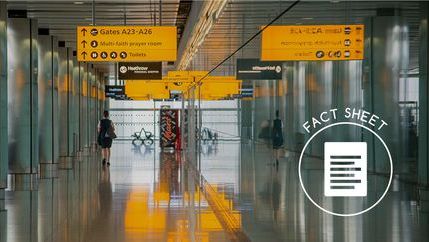What are Right to Rent checks?
All landlords of private rented accommodation in England, or agents working on their behalf, are required to carry out Right to Rent checks for new tenancy agreements to determine whether all adult occupiers aged 18 and over have the right to live in the UK.
Right to Rent checks do not apply in Wales, Scotland or Northern Ireland. However, agents must conduct Right to Rent checks for property in England, even if the agency is based outside of the country.
Since 1 October 2022, prescribed checks must be carried out in one of three ways:
- a manual Right to Rent check applicable to all citizens
- a Right to Rent check using IDVT via the services of an identity service provider (IDSP) but only for British and Irish citizens.
- a Home Office online Right to Rent check (an eVisa share code) for all non-British and non-Irish citizens.
Landlords and agents who can show they have correctly conducted an initial Right to Rent check and any follow-up checks have a statutory excuse against a penalty. If checks have not been carried out in the proper manner, agents or landlords will be liable for a criminal or civil penalty depending on the circumstances.
Our involvement
We regularly attend the Home Office’s Right to Rent – Landlords Consultancy Panel and are keen to hear feedback from members on any issues so we can represent the sector, email [email protected].
Helping members to comply
Our easy to read Immigration Act and Right to Rent fact sheets help break down the legislation highlighting the changes, who it applies to and most importantly what you actually need to do.
Useful links
- Right to rent immigration checks: landlords' code of practice
- Right to Rent document checks: a user guide
- Guidance on the Windrush scheme
EU Settlement Scheme
The EU Settlement Scheme was introduced by the Home Office in 2019 as a way for EU citizens to apply for a pre-settled or settled status within the UK as freedom movement ended with the EU on 31 December 2020 as a result of Brexit. From 30 June 2021, the EU Settlement Scheme no longer accepted new applications for the majority of cases.
Simpler Right to Rent checks for tenants with pre-settled status
The Home Office has made changes to the EU Settlement Scheme (EUSS) designed to simplify the Right to Rent and similar checks for pre-settled status holders. Letting agents and landlords will only need to carry out a check at the beginning of a tenancy.





